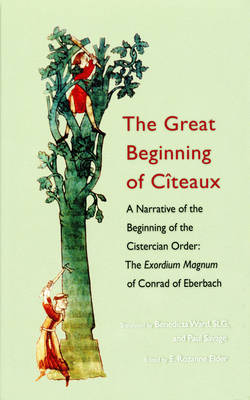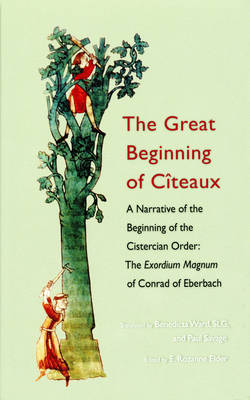
- Retrait gratuit dans votre magasin Club
- 7.000.000 titres dans notre catalogue
- Payer en toute sécurité
- Toujours un magasin près de chez vous
- Retrait gratuit dans votre magasin Club
- 7.000.0000 titres dans notre catalogue
- Payer en toute sécurité
- Toujours un magasin près de chez vous
The Great Beginning of Citeaux
A Narrative of the Beginning of the Cistercian Order Volume 72
Description
In the closing decades of the twelfth century, the Cistercian Order had become an important ecclesiastical and economic power in Europe. Yet it had lost its influential spokesman, Bernard of Clairvaux, and as the century drew to a close, religious sensibilities were changing. The new mendicant orders, the Franciscans and the Dominicans, and the impulses they embodied were to shift the center of gravity in Christian religious life for centuries to come.
It was in this transitional period that Conrad of Eberbach gradually--between the 1180s and 1215--compiled the Exordium magnum cisterciense: The Great Beginning of Cîteaux. It is a book of history and lore, often with miraculous stories, meant to continue a great spiritual tradition, and it is also a book meant to justify and repair the Order. The Exordium magnum was in part an effort to provide a historical and formative context for those who were to be Cistercians in the thirteenth century.
Conrad's combination of a historical sensibility and the edifying exempla makes the Exordium magnum a remarkably innovative book. Its unique combination of genres--narratio and exempla--is conceivable only within the intellectual world of the twelfth or early thirteenth centuries, before exempla collections came to be complied solely for edification or use in sermons. The Great Beginning of Cîteaux is a revealing book and an excellent place to begin more detailed study of the Cistercian Order between 1174 and the middle of the thirteenth century.
Spécifications
Parties prenantes
- Editeur:
Contenu
- Nombre de pages :
- 648
- Langue:
- Anglais
- Collection :
- Tome:
- n° 72
Caractéristiques
- EAN:
- 9780879071721
- Date de parution :
- 01-05-12
- Format:
- Livre relié
- Format numérique:
- Genaaid
- Dimensions :
- 145 mm x 218 mm
- Poids :
- 857 g

Les avis
Nous publions uniquement les avis qui respectent les conditions requises. Consultez nos conditions pour les avis.





